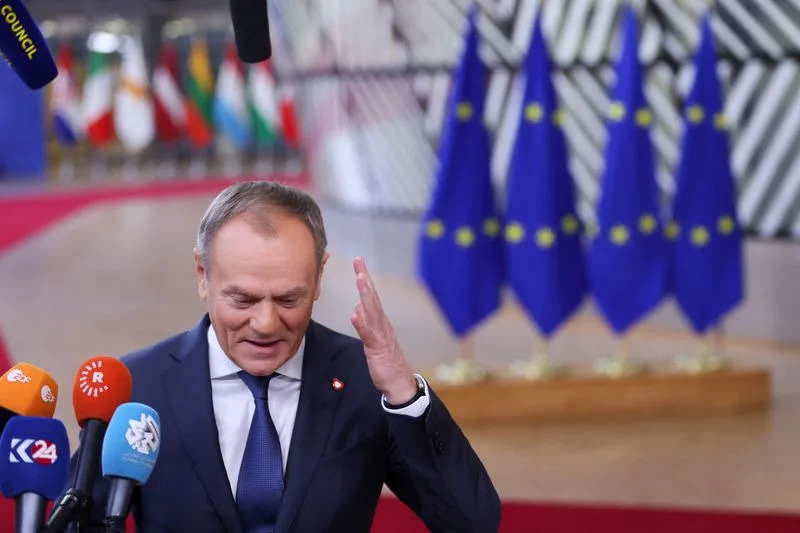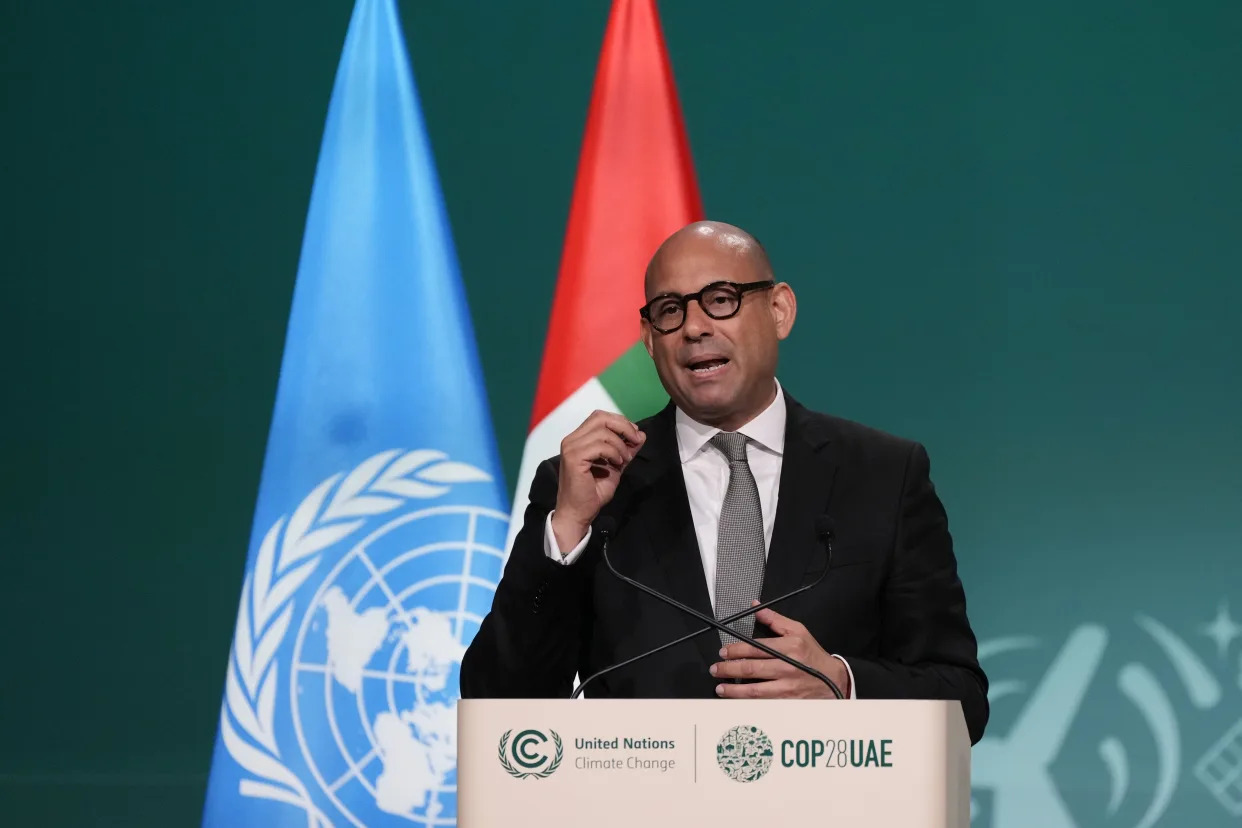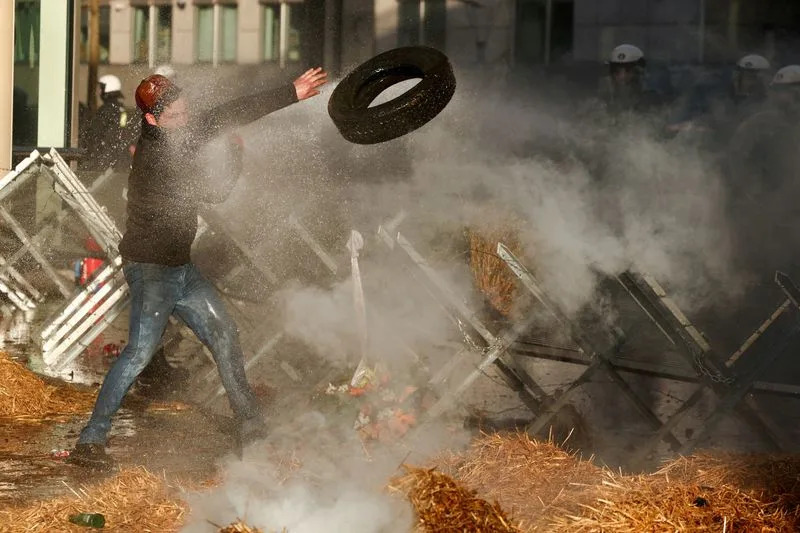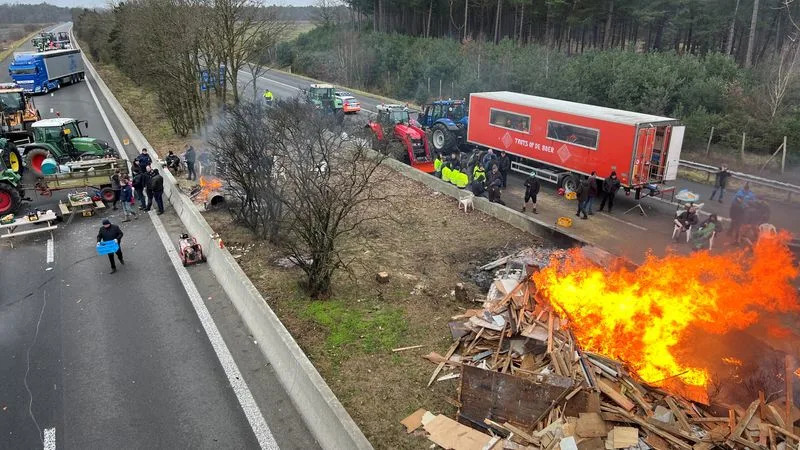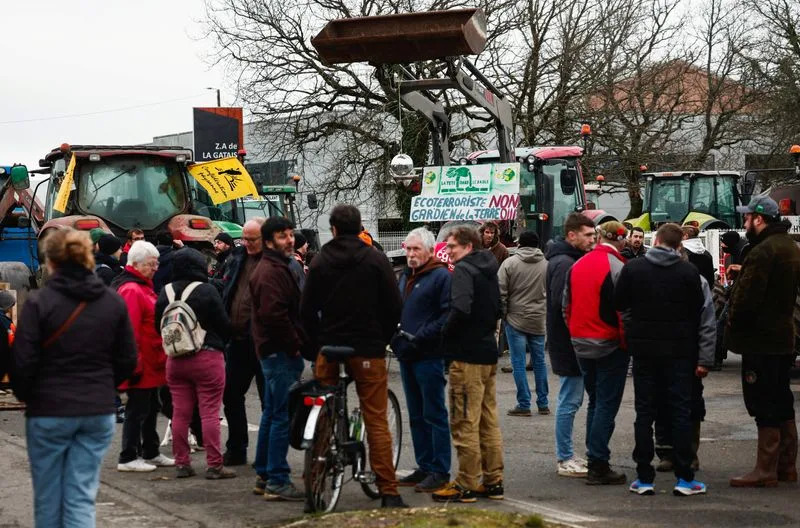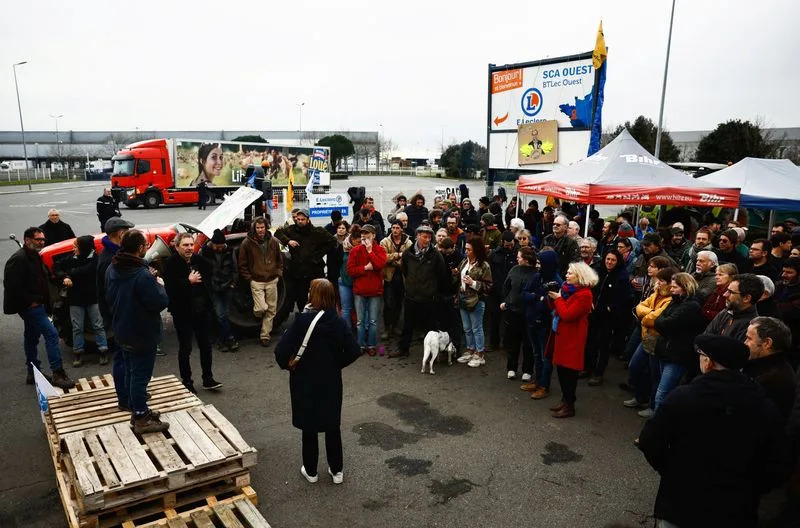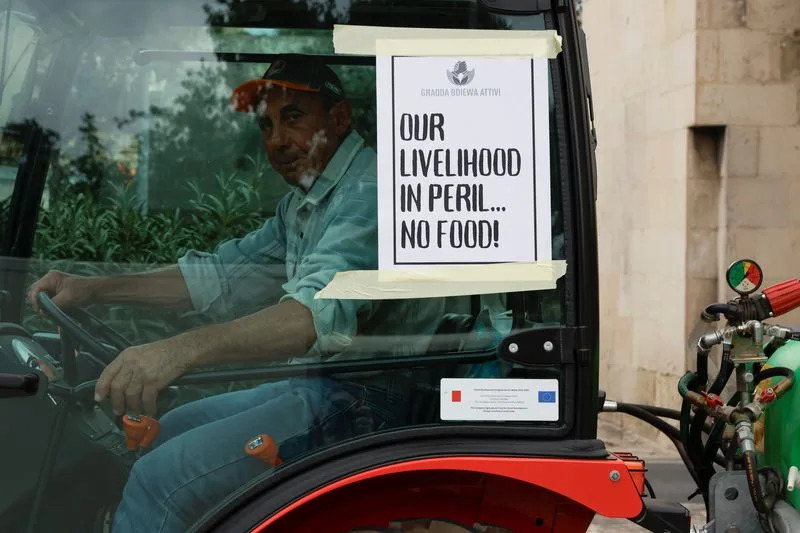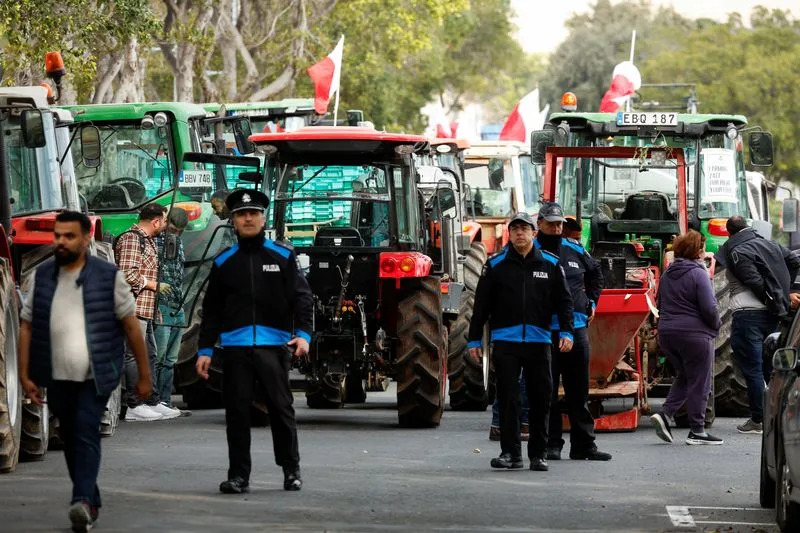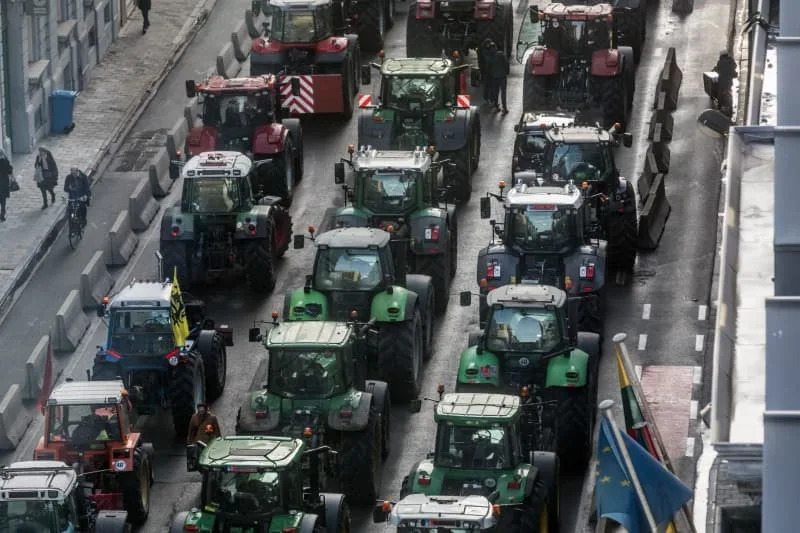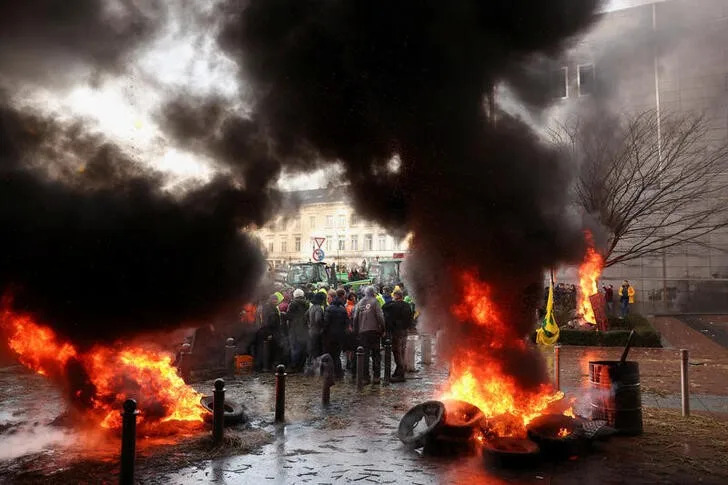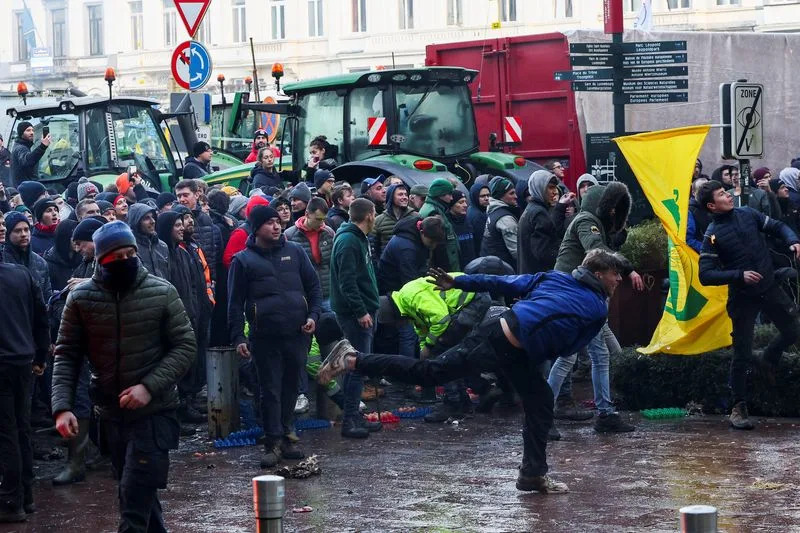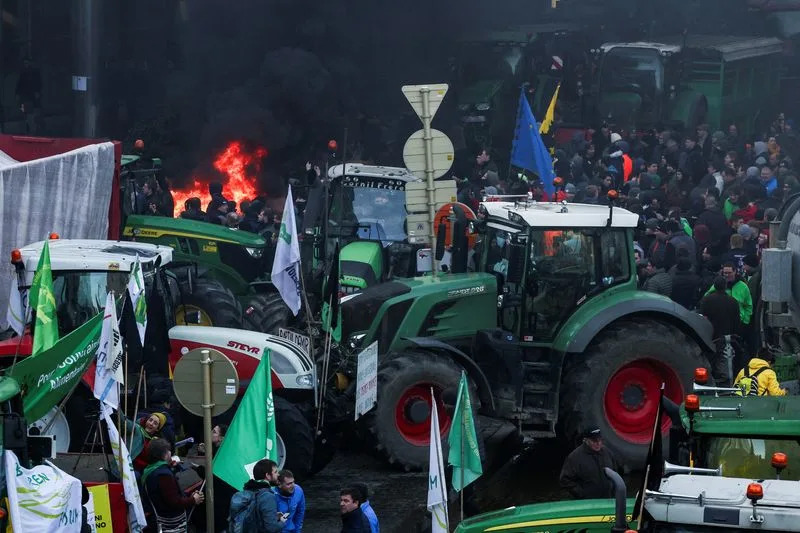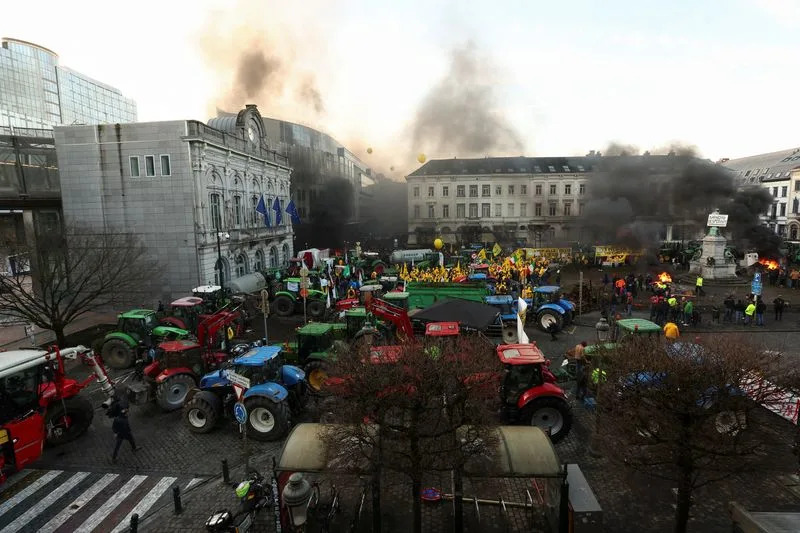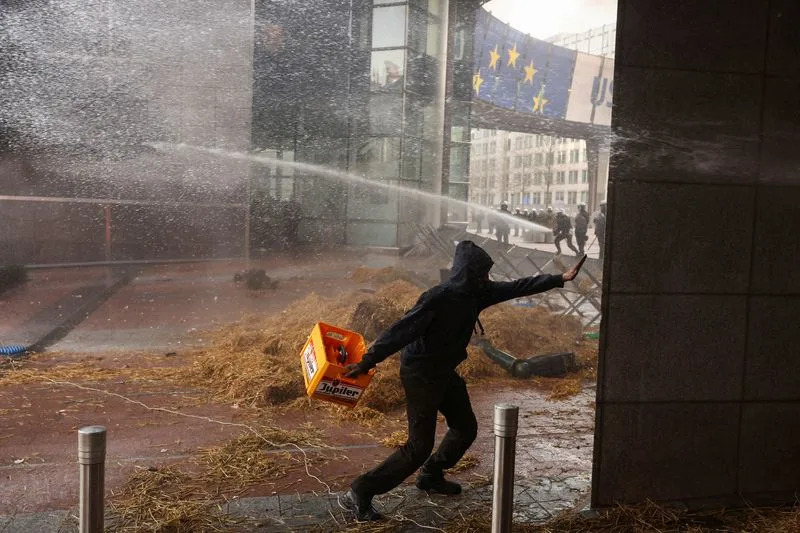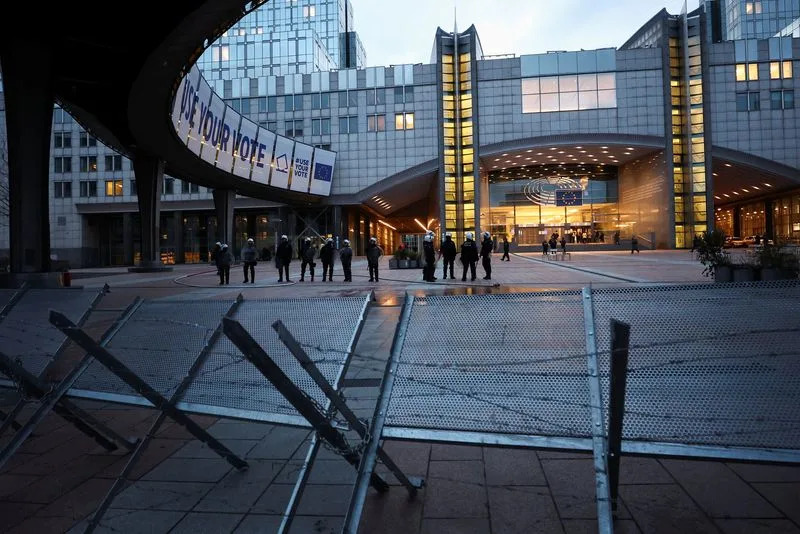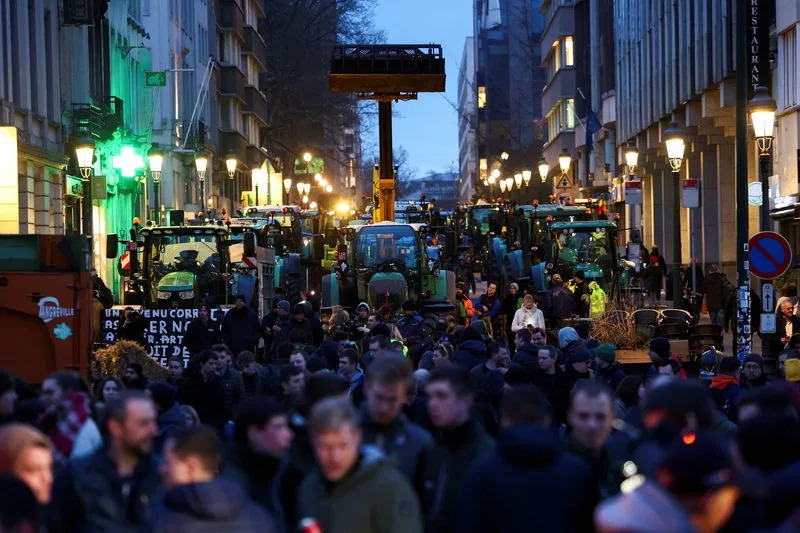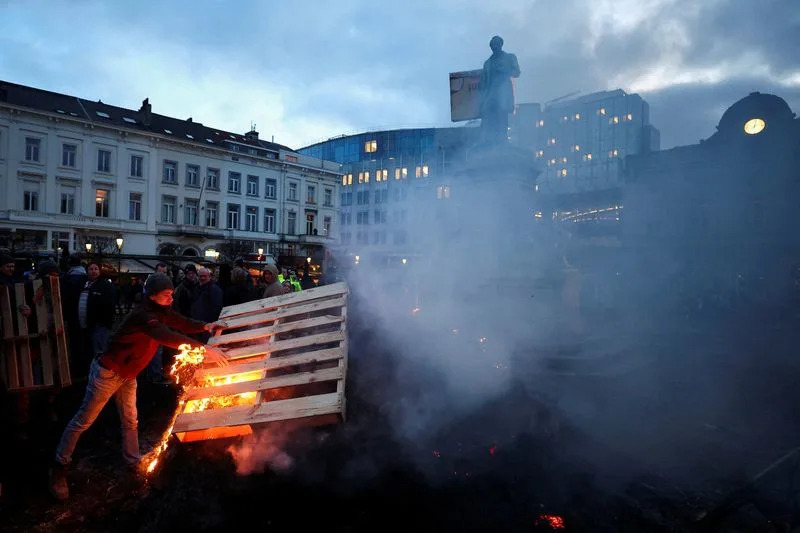Brian Platt, Robert Tuttle and Geoffrey Morgan
Fri, February 2, 2024


(Bloomberg) -- Justin Trudeau has promised one of the largest government-led asset sales in Canadian history by divesting the Trans Mountain pipeline, a huge conduit that moves crude from the province of Alberta to the west coast.
But the government faces a mounting set of challenges in unloading it — including high interest rates, a fight over costs with oil companies, and a looming election.
The Canadian prime minister has pledged to use the pipeline to generate wealth for Canada’s Indigenous people, and the government plans to essentially gift a stake in it to more than 100 groups. It’s a complex process, fraught with political pitfalls, and it appears to have stalled in recent months, according to people familiar with the matter.
“It’s really disappointing. It’s unacceptable,” said Chief Tony Alexis, head of the Alexis Nakota Sioux Nation, one of many Indigenous groups waiting for details on how to acquire an equity position in the project. It has been “radio silence” from the government since a meeting last September, he said.
“In the next few months, oil’s going to be flowing through that, and every day that there’s no deal in place, every First Nation is losing money,” Alexis said.
Apart from the Indigenous stake, the government’s intention is to auction the rest of Trans Mountain once it’s fully in operation. Potential buyers include another pipeline operator or private equity and infrastructure funds — all of which might also include Indigenous groups as commercial partners.
Investment bankers, corporate lawyers, government officials and the energy industry are all watching the situation closely, given the big money and potential fees involved. Trans Mountain may be worth as much as C$28 billion ($20.9 billion), according to one analyst’s estimate, though some others have lower valuations.
For Trudeau, the stakes are massive.
The decision to buy Trans Mountain from Kinder Morgan Inc. in 2018 was one of the most consequential and controversial moves of his eight years in power. To this day, he’s criticized by environmentalists for going ahead with plans to nearly triple its capacity to almost 900,000 barrels a day.
Trudeau has always argued that the project is in the national interest to reduce Canada’s near-total reliance on the US for exporting its oil. The country is the world’s fourth-largest oil producer — larger than Iraq, China or Iran — but Trans Mountain is the only pipeline that takes crude from Alberta to a Canadian ocean port, allowing shippers to access global markets.
That lack of export options has caused Canadian heavy crude to trade as much as $50 a barrel cheaper than US benchmark West Texas Intermediate at various points in the past decade.
At more than C$30 billion, the Trans Mountain expansion is tens of billions of dollars over budget. But it’s almost complete and is scheduled to begin pumping oil within months, although a recent construction mishap threatens more delays. Divesting the pipeline soon would allow Trudeau to go into the next election saying that he kept his word to the western Canadian energy sector as well as Indigenous groups.
Government officials, speaking on condition they not be identified, said they can’t commit to a specific date for selling Trans Mountain. The government will be flexible and judge market conditions, but once the expanded pipeline starts operation and revenue starts flowing, its value should strengthen, they said.
The government also believes that clarifying Indigenous participation is key to boosting investor confidence in the project.
Last summer, Freeland sent a letter to First Nations groups proposing a special-purpose vehicle that would hold a stake in the pipeline. Individual groups can choose whether to opt in. For those that want a piece of the action, the government intends to provide risk-free access to capital, the letter said, without providing details.
There are more than 120 Indigenous groups that have been identified as being potentially impacted by the pipeline project. Some live along its 715-mile route from central Alberta to terminal facilities near Vancouver. Other groups will be affected by increased oil-tanker traffic along the British Columbia coast, while still others are located far off the line and appear to face few direct impacts.
In late September, finance department officials called a meeting in Vancouver with First Nations representatives to discuss the investment. But the event went poorly. Indigenous chiefs arrived expecting to hear the terms of the offer, but were instead met with little new information, according to people who attended. There was also disagreement among some of the invited groups over who should be allowed to get Trans Mountain equity.
“It was a failure right off the bat,” said Alexis, who wasn’t there but was briefed on it. “The idea of getting people together, I guess, was a successful event. But in terms of moving to where we need to be, we didn’t get anywhere.”
The government also needs to test the market to see what investors are willing to pay.
It has already sunk about C$35 billion ($26.2 billion) into Trans Mountain, including the initial purchase from Kinder Morgan and the cost to build the expansion. Trudeau’s government will almost certainly take a significant loss on the sale price, even if an auction goes well, according to analysts.
When the new pipeline goes into service, oil companies shipping less than 75,000 barrels a day on long-term contracts will pay around C$11 a barrel, which is more than double what was expected when the expanded line was proposed. That guaranteed stream of revenue should allow the government to fetch C$23 billion to C$28 billion for the pipeline, Stifel Financial analyst Cole Pereira said in a phone interview.
Those fees are interim tolls. The process of determining final tolls will require a separate regulatory application, expected to start after the final costs of the pipeline expansion are determined. Some oil companies, including Canadian Natural Resources Ltd., have argued they’ll be paying too much to use Trans Mountain.
Other analysts believe the potential value is much lower. Stephen Ellis of Morningstar has estimated the sale price to be closer to C$15 billion, depending on how the tolls are settled.
Finance Minister Chrystia Freeland will “initiate a divestment process in due course,” officials in her office said in an emailed statement, and will fulfill the government’s promise to have Indigenous participation. “This is an important step in advancing economic reconciliation, as Trans Mountain delivers good jobs and significant revenues today and into the future.”
Pembina and Brookfield
At least in public, the most serious industry player in the running is a joint venture called Chinook Pathways, a partnership between Pembina Pipeline Corp. and a coalition of Indigenous groups. But as construction costs soared, Pembina appears to have cooled on the idea, and the company said it will only evaluate an equity stake after the regulatory, construction and tolling issues are resolved. The company didn’t respond to a request for comment.
Other Canadian pipeline companies have their own challenges. Enbridge Inc., Canada’s largest oil pipeline operator, is focused on investing in natural gas transport, utilities and renewable energy. Enbridge didn’t reply to a request for comment.
TC Energy Corp., owner of the Keystone pipeline, has no plans to acquire an interest in Trans Mountain, the company said in a statement. It’s spinning off its liquids pipeline business and divesting assets after facing massive cost overruns on a gas pipeline project.
Alberta’s provincial pension fund has publicly expressed interest. “We have an active file on Trans Mountain,” Alberta Investment Management Corp. Chief Executive Officer Evan Siddall said on BNN Bloomberg Television. “We would look at it, the government knows that, and we’re keeping track of that situation.”
Brookfield Corp., the Canadian alternative asset manager that controls Brookfield Asset Management and a $180 billion portfolio of infrastructure assets, is sometimes mentioned by market participants. Its Brookfield Infrastructure Partners division bought a pipeline in western Canada in 2021, and it has the capital to handle a large deal. “I think Brookfield is the most likely buyer,” Pereira said. The company declined to comment.
Most observers see a sale as unlikely before the end of 2024, given the slow pace of Indigenous consultations, the legal wrangling over tolls, and potential delays in filling the line with oil.
But the longer it goes on, the more Trudeau’s ambitions will run into the election cycle. A vote will almost certainly will happen in 2025, if not sooner. His Liberal Party is currently trailing the Conservative Party in polls by a wide margin.
That raises the prospect of further delays in the Trans Mountain sale. The Canadian government, which never intended to be the long-term owner of an oil pipeline, has already owned this one for well over five years, and counting.
--With assistance from Laura Dhillon Kane, Layan Odeh and Paula Sambo.
Most Read from Bloomberg Businessweek
